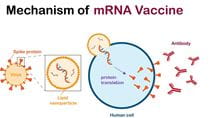Greg Richter

News Manager, University Communications
Greg Richter is the news manager who covers Medicine, Public Health, Biomedical Engineering, Science and Health Systems. He graduated from Rowan University, where he also worked in its Office of Media and Public Relations. Since then, he has lived in Philadelphia for eight years and worked in Penn Medicine’s Office of Communications, most recently as a senior medical communications officer. Follow him on twitter @DrexelGreg.
Contact
215-895-2614 gdr33@drexel.eduArticles
 Drexel Researchers Explore Role of Environmental Influences on Autism as Part of Multi-Million Dollar NIH Effort
Drexel Researchers Explore Role of Environmental Influences on Autism as Part of Multi-Million Dollar NIH Effort
Oct 17, 2025
 When Climate Disasters Hit, They Often Leave Long-term Health Care Access Shortages, Drexel Study Finds
When Climate Disasters Hit, They Often Leave Long-term Health Care Access Shortages, Drexel Study Finds
May 29, 2025
Media Contact Articles
 Drexel Study Finds Early Intervention Helps Most Autistic Children Acquire Spoken Language
Drexel Study Finds Early Intervention Helps Most Autistic Children Acquire Spoken Language
Jan 22 2026
 Drexel Public Health Researchers Lead $3.7 Million Study Looking at Impact of Federal Housing Assistance on Health Care for Chronic Conditions
Drexel Public Health Researchers Lead $3.7 Million Study Looking at Impact of Federal Housing Assistance on Health Care for Chronic Conditions
Nov 7 2025
 Drexel Researchers Gain New Insights from Malaria-Causing Parasite That May Support Development of Future Antimalarial Drugs
Drexel Researchers Gain New Insights from Malaria-Causing Parasite That May Support Development of Future Antimalarial Drugs
Oct 20 2025
 Drexel Researchers Explore Role of Environmental Influences on Autism as Part of Multi-Million Dollar NIH Effort
Drexel Researchers Explore Role of Environmental Influences on Autism as Part of Multi-Million Dollar NIH Effort
Oct 17 2025
 Nationwide Study Led by Drexel Researchers Develops Most Effective Predictor of Severe COVID-19
Nationwide Study Led by Drexel Researchers Develops Most Effective Predictor of Severe COVID-19
Aug 26 2025
 When Climate Disasters Hit, They Often Leave Long-term Health Care Access Shortages, Drexel Study Finds
When Climate Disasters Hit, They Often Leave Long-term Health Care Access Shortages, Drexel Study Finds
May 29 2025
Drexel News is produced by
University Marketing and Communications.







